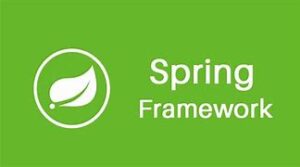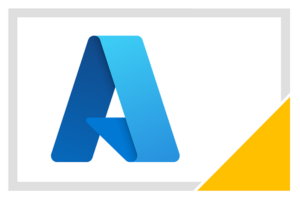- (+1866-648-7284 )
- hello@ohiocomputeracademy.com
Agile Software Engineering: From Principles to Practices
Certification
Prerequiste
FAQs
Course Overview
Welcome to “Agile Software Engineering: From Principles to Practices,” a comprehensive training program designed for individuals seeking to deepen their understanding of Agile methodologies and enhance their skills in software engineering. As organizations increasingly adopt Agile frameworks to improve collaboration, efficiency, and product quality, this course equips you with the essential knowledge and tools needed to thrive in an Agile environment.
Throughout this course, participants will explore the foundational principles of Agile and the Scrum framework, learning how to effectively implement Agile practices in software development projects.
By the end of this course, you will be well-prepared to take on roles such as Scrum Master or Agile Software Engineer, positioning yourself as a valuable asset in the evolving field of Agile project management. Join us on this journey to master Agile software engineering and unlock your potential for success in today’s dynamic software development landscape!
Kickstart your career in Agile Project Management by mastering the essential skills needed to excel in Agile software engineering, ensuring you are job-ready in 30 hours or less.
Highlights
- Upgrade your career with top notch training
- Enhance Your Skills: Gain invaluable training that prepares you for success.
- Instructor-Led Training: Engage in interactive sessions that include hands-on exercises for practical experience.
- Flexible Online Format: Participate in the course from the comfort of your home or office.
- Accessible Learning Platform: Access course content on any device through our Learning Management System (LMS).
- Flexible Schedule: Enjoy a schedule that accommodates your personal and professional commitments.
- Job Assistance: Benefit from comprehensive support, including resume preparation and mock interviews to help you secure a position in the industry.
Outcomes
- In-Depth Understanding of Agile Principles: Develop a strong grasp of Agile methodologies and the core principles outlined in the Agile Manifesto, enabling you to apply Agile concepts effectively within software projects.
- Comprehensive Knowledge of Scrum and Other Frameworks: Gain detailed insights into the Scrum framework as well as other Agile methodologies like Kanban and Extreme Programming, and understand when to apply each.
- Proficiency in Agile Project Lifecycle: Learn to manage the Agile software development lifecycle, including the stages of Inception, Iteration, Release, and Closure, and understand the iterative nature of Agile.
- Skills in User Story Creation and Backlog Management: Master techniques for writing effective user stories, defining acceptance criteria, and maintaining a prioritized Product Backlog that drives project success.
- Effective Agile Planning and Estimation Techniques: Acquire skills for planning Sprints and estimating work using Agile methods, ensuring your team can set realistic goals and deliver value consistent
- Facilitation Skills for Agile Practices: Develop practical skills for facilitating Agile ceremonies, such as Sprint Planning, Daily Standups, and Retrospectives, promoting collaboration and team accountability.
- Understanding of Development Best Practices: Learn key practices in Agile software development, such as Continuous Integration, Continuous Delivery, and Test-Driven Development to ensure high-quality code.
- Change and Risk Management Strategies: Gain insights into managing change and mitigating risks in Agile projects, enhancing your ability to adapt to evolving requirements.
- Hands-On Experience with Agile Tools: Get practical experience using Agile project management tools (e.g., JIRA, Trello) for backlog management, team collaboration, and tracking progress.
- Real-World Applications and Case Studies: Engage in case studies that illustrate successful Agile implementations, preparing you to apply these practices in real-world scenarios.
- Career Readiness for Agile Roles: Equip yourself with the skills and knowledge to pursue roles such as Agile Software Engineer, Scrum Master, or Agile Coach, enhancing your marketability in the job market.
Key Learnings
- Grasp the core values and principles of Agile methodologies, including the Agile Manifesto, and how they apply to software development.
- Gain comprehensive insights into the Scrum framework, including its roles (Scrum Master, Product Owner, Development Team), artifacts (Product Backlog, Sprint Backlog, Increment), and events (Sprint Planning, Daily Scrum, Sprint Review, Sprint Retrospective).
- Understand the stages of Agile software development, including Inception, Iteration, Release, and Closure, and the importance of iterative delivery.
- Learn how to write effective user stories with clear acceptance criteria and manage the Product Backlog to ensure alignment with project goals.
- Acquire skills in planning Sprints and estimating work using methods such as Planning Poker and T-Shirt Sizing to facilitate effective project execution.
- Develop practical skills for facilitating key Scrum ceremonies, ensuring productive collaboration and accountability among team members.
- Gain proficiency in Agile software engineering practices, including Continuous Integration (CI), Continuous Delivery (CD), and Test-Driven Development (TDD).
- Learn strategies for managing change and mitigating risks in Agile projects, enhancing your ability to adapt to evolving project requirements.
- Get hands-on experience with popular Agile project management tools (e.g., JIRA, Trello) that support Agile practices and facilitate team collaboration.
- Engage in case studies and practical exercises that reflect real-life scenarios, preparing you to implement Agile methodologies effectively in your organization.
- Equip yourself with the skills and knowledge necessary to pursue various roles in Agile software development, enhancing your competitiveness in the job market.
Pre-requisites
- Familiarity with fundamental project management principles and methodologies
- Familiarity with the software development lifecycle (SDLC) and common development practices.
Job roles and career paths
- This training will equip you for the following job roles and career paths:
- Agile Software Engineer
- Scrum Master
- Product Owner
- Agile Project Manager
- Agile Coach
- Business Analyst
- Quality Assurance (QA) Engineer
Agile Software Engineering: From Principles to Practices
The demand for skills in Agile project management is rapidly increasing as organizations seek to enhance their adaptability, improve collaboration, and accelerate software delivery. As businesses increasingly adopt Agile methodologies to drive efficiency and responsiveness to change, there is a growing need for qualified professionals who understand Agile principles and practices, particularly Scrum. This trend underscores the value of completing the “Agile Project Management: Mastering Agile Practices” course, as graduates will be equipped with the knowledge and skills necessary to meet the needs of the evolving job market. Individuals who complete this course will find themselves in high demand across various industries that prioritize Agile project management and team collaboration.
Curriculum
- 9 Sections
- 28 Lessons
- 32 Hours
Expand all sectionsCollapse all sections
- Module 1: Introduction to Agile Principles4
- Module 2: Agile Frameworks and Methodologies3
- Module 3: Agile Software Development Life Cycle3
- Module 4: Agile Roles and Responsibilities3
- Module 5: User Stories and Requirements Gathering3
- Module 6: Agile Planning and Estimation3
- Module 7: Agile Development Practices3
- Module 8: Managing Change and Risks in Agile Projects3
- Module 9: Tools for Agile Software Engineering3
Agile Software Engineering is an iterative and incremental approach to software development that emphasizes flexibility, collaboration, and customer feedback throughout the development process. It integrates Agile principles and practices into the software engineering process, enabling teams to deliver high-quality software efficiently and respond quickly to changing requirements.
Agile is a project management methodology that emphasizes iterative development, collaboration, and flexibility in responding to change. It aims to enhance efficiency and quality by breaking projects into smaller, manageable units called iterations or sprints, allowing teams to deliver incremental value to customers.
Scrum is an Agile framework used for managing and executing complex projects, primarily in software development. It emphasizes collaboration, accountability, and iterative progress through a structured process. Scrum organizes work into time-boxed iterations called Sprints, typically lasting two to four weeks, during which a cross-functional team works to complete a set of features or deliverables.
This course is intended for individuals who are looking to enhance their understanding of Agile software engineering principles and practices. It is suitable for software developers, project managers, Scrum Masters, Agile coaches, and team leaders who want to implement Agile methodologies in their projects effectively. Additionally, professionals involved in product development, quality assurance, and business analysis will benefit from this course. Whether you are new to Agile or seeking to deepen your existing knowledge, this course will provide valuable insights and practical skills to help you succeed in an Agile environment.
It is recommended that participants have a basic understanding of project management concepts. Additionally, a foundational knowledge of software development processes and team collaboration will be beneficial.
The course is designed to be completed in approximately 32 hours, which includes 16 hours of instructor-led training and 16 hours of student practice.
Yes, upon successfully completing the course, participants will receive a course completion certificate that that acknowledges their understanding and skills in Agile software engineering practices. This certificate can enhance your professional portfolio, demonstrating your commitment to mastering Agile methodologies and providing evidence of your qualifications for roles in Agile project management and software development.
During this course, you will learn the fundamental principles of Agile software engineering, including the Agile Manifesto and key Agile methodologies. You will gain in-depth knowledge of the Scrum framework, including its roles (Scrum Master, Product Owner, Development Team), artifacts (Product Backlog, Sprint Backlog, Increment), and events (Sprint Planning, Daily Scrum, Sprint Review, Sprint Retrospective).
Yes, the course includes several hands-on projects that allow participants to apply the concepts and skills they learn in a practical context. These projects will involve creating and managing a Product Backlog, facilitating Scrum events, and simulating real-world Agile scenarios. Participants will work collaboratively in small groups to engage in interactive exercises, allowing you to gain valuable experience in Agile practices and effectively prepare for implementation in professional settings. By participating in these hands-on projects, you will enhance your understanding of Agile software engineering and develop the skills necessary for successful project delivery.
Yes. This course offers continued access to materials even after course completion.
Upon completing this course, participants can pursue a variety of career opportunities in Agile project management and software development. Potential job roles include Certified Scrum Master, Agile Software Engineer, Product Owner, Agile Coach, and Project Manager. Graduates may also find positions as Agile Team Members, Business Analysts, or Quality Assurance (QA) Engineers within Agile environments. The skills and knowledge acquired in this course will enhance your employability in organizations that prioritize Agile methodologies, making you a valuable asset in a competitive job market.
Yes, you will receive career support services, including resume writing and interview preparation.
Participants will have access to instructors and support staff who can assist with any questions or challenges encountered throughout the training.
To enroll in this course, please email us at enroll@ohiocomputeracademy.com.
Yes, discounts may be available for group registrations. Please contact us at enroll@ohiocomputeracademy.com for more details on group pricing options.
$899
Course Summary
Duration: 32 hours
Level: Intermediate
Training Mode: Live Online | Instructor-Led | Hands-On
Share This Course
Highlights
- Instructor-led training
- One-on-One
- Free access to future sessions (subject to schedule & availability)
- Job Assistance
- Interview preparation
- Online access provided through the LMS
Pricing
$899
Group Training (minimum 5 candidates):
$539
Individual Coaching:
$899.00
Corporate Training
- Customized Learning
- Enterprise Grade Reporting
- 24x7 Support
- Workscale Upskilling






